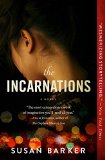Book Club Discussion Questions
In a book club? Subscribe to our Book Club Newsletter!
For supplemental discussion material see our Beyond the Book article, Reincarnation and the Dalai Lamas and our BookBrowse Review of The Incarnations.
Please be aware that this discussion guide will contain spoilers!
- Consider Wang's relationship with Yida. How have social and cultural constraints affected their union? For example, early on we learn that Yida, like many Chinese parents, had wanted a boy but Wang "had shamed her into keeping the baby" (their daughter, Echo; page 13). Are there other examples of how social norms or constraints have affected their relationship dynamic?
- The chapters telling the stories of Wang's past incarnations are written in the first person ("I") and the second person ("you"). How did this style affect your experience reading the story? Why do you think the author chose to frame these sections from this narrative perspective?
- Wang initially views the histories as "folktales" (page 75). Do you think he eventually comes to believe that these stories are true representations of his past lives? Why or why not? Find moments in the text that support your answer.
- Betrayal is a recurring theme throughout the novel. Is there any significance to who betrays whom as the two characters' lives proceed together over hundreds of years? Do you think that their actions in one life affect the next life? Or does each life stand apart? Refer to passages in the text to support your answers.
- Consider the notion of madness in the novel. Which characters are seen as mad, and why? How does this classification affect those characters in Chinese society—both in the present and in the past?
- In the fourth letter, the writer declares, "We must rebel against fate. . . . Fate must be outwitted. It must no longer stand in our way" (page 117). What role does fate play in the story? Do you think the characters succeed in rebelling against fate in the last incarnation? Why or why not?
- In the fifth letter, the writer notes that this "third biography has been more punishing than the others" (page 179). And after reading it, Wang is convinced he read the story at some point in his schooling since "the story had resonated so strongly in his memory" (page 215). All of the histories are graphic and brutal stories; why do you think this one (Ming Dynasty, 1542) is the most difficult for the writer to relive? Which of the five histories do you see as the darkest or most agonizing?
- Towards the end of the novel, we learn that Shuxiang is the letter writer. How does this change your understanding of Wang and Shuxiang's relationship as mother and son? Do you see her differently as a mother? Refer back to Wang's memories of his mother, and compare them to Shuxiang's own recollections.
- In each of their incarnations, the two characters have complex and intense relationships with each other. After so much conflict and passion between them throughout the past thousand years, consider the significance of ending the novel with a mother and son relationship. Why do you think the author chose to end the novel on this note?
- Consider Echo's role throughout the novel, and at the end; the author brings the novel full circle, placing Echo into the same histories her father and grandmother lived. Despite her conviction that "The Watcher is mentally ill" (page 367), Echo begins to read the letters and stories of her past lives. As such a young child, how will Echo interpret these stories? Do you think Shuxiang was right to pass on her insight of previous incarnations to her granddaughter? Why or why not?
Enhance Your Book Club
- Research one of the time periods through which Wang lives and discuss how the stories fit into the historical context (Tang Dynasty—632 AD; Jin Dynasty—1213; Ming Dynasty—1542; Qing Dynasty—1836; or People's Republic of China—1966).
- Wang dies before Shuxiang can reveal herself as the biographer of their past lives, and this is the only life in which the two do not witness one or the other's last moments alive. Write a short chapter or scene imagining a reunion between Wang and Shuxiang, or discuss why you think the author chose not to include their reunion in the novel.
Unless otherwise stated, this discussion guide is reprinted with the permission of Touchstone.
Any page references refer to a USA edition of the book, usually the trade paperback version, and may vary in other editions.
